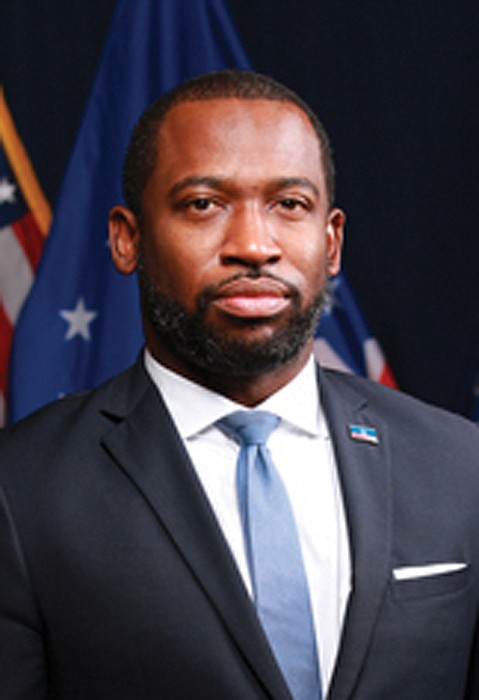Moving forward
Some hope collective bargaining agreement will define Richmond as a ‘workplace of choice’
Jeremy M. Lazarus | 7/28/2022, 6 p.m.
Waves of applause resounded in the City Council chambers Monday night after, one by one, the nine members of the governing body voted, as anticipated, to allow city workers to organize unions and negotiate contracts on wages, benefits and working conditions.
“Now the real work begins,” said Council President Cynthia I. Newbille in noting that passage of the landmark ordinance that Mayor Levar M. Stoney also supported represents just the first step to making unions and collective bargaining a reality.
The ordinance, which blocks City Council employees from unionizing, cleared the way for workers in departments that report to Lincoln Saunders, the city’s chief administrative officer, to unionize — potentially more than 3,000. However, no employee can be forced to join or pay dues, and any unions that are formed will be barred from striking. And no matter what agreement the administration and a union reach, the final decision on approving any contract will be up to City Council.
Still, for the dozens of city workers, who see unions as the only way to have their concerns on wages, benefits and health and safety issues be heard by the city’s managers, it is a big step forward.
Others see unions as a way to gain higher pay; one recent study found that a significant share of employees, mostly Black, are un- able to afford to raise a family on the wages they now receive.
“This a historical moment. You need to understand how monumental this is,” Doris Crouse-Mays, president of the Vir- ginia AFL-CIO, said before the vote. “The real winners will be the city’s employees. Now they will have a voice and a right because of this ordinance.”
For many, the vote was unbelievable. “I never thought I would see this day,” said Maurice Black, a veteran Public Works employee who pushed collective bargaining as a way to end having him and fellow workers being forced to face injury from ill-maintained or obsolete equipment.
Carl Scott, vice president of the Richmond Coalition of Police, also was joyous. He said the ordinance grants workers a seat at the table with management, which he said is “worth its weight in gold.”
Mr. Saunders, who had spent months seeking to pilot unions only for labor and trade employees, said he is hoping that coun- cil’s approval will enable the city, which currently is struggling to fill hundred so vacancies, to become more of “workplace of choice.”
It remains to be seen, though, whether this sea change in employee relations also will usher in better services for city residents and increased productivity among city employees, as advocates insist will happen.
The approved ordinance allows for five separate bargaining units – one for police officers, one for firefighters, one for labor and trade workers, one for administrative and technical staff and one for professional workers.
It will take time to get any of the bargaining units off the ground, with some moving more quickly than others.
Before anything can happen, the Stoney administration must hire a neutral labor relations administrator (LRA) to oversee the program and write the regulations that will guide the develop- ment of recognized bargaining units that will negotiate with the administration.
The ordinance grants the Stoney administration four months to hire an LRA or to hire a temporary administrator to run the program until the permanent LRA is chosen. That means it could take until Thanksgiving to get an administrator in place so that person can developing the regulations.
Police and fire already have chosen organizations that are ready to roll, the Richmond Coalition of Police and Local 995 of the International Association of Firefighters. Both are expected to easily secure at least 30 percent support from those they will represent.
Both groups are expected to begin collecting signatures of support and be ready to submit a request to the incoming LRA for an election to allow employees to choose their bargaining agent. The ordinance also requires 120 days to pass before an election request can be submitted.
Two other organizations, the Service Employees International Union and the Teamsters, appear ready to compete to be the bargaining agent for one or more of the other employee groups.
Given the groundwork, local organizers have said it is possible they could be ready to roll after 120 days as well.
An election could be held 45 days after the LRA accepts the paperwork and confirms that it meets the criteria.
In other words, it could be next spring before negotiations could begin.






